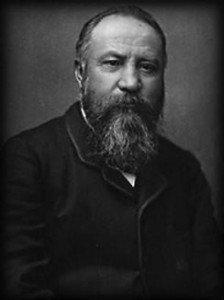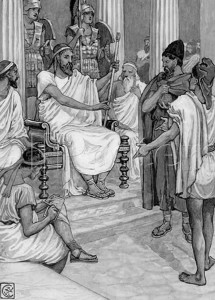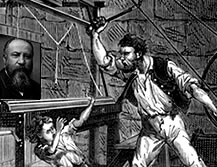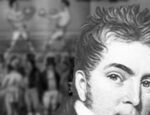Description
 Meet Benoît Malon, the son of an impoverished peasant family whose five-volume history of socialism (1879-1886) identified the Athenian statesman Solon as the first socialist the world had seen.
Meet Benoît Malon, the son of an impoverished peasant family whose five-volume history of socialism (1879-1886) identified the Athenian statesman Solon as the first socialist the world had seen.
Malon avoided his ancestral fate of farm labour by managing to enter a seminary school in Lyon. Here he will have learned about ancient Greece and Rome, bringing to the ancient sources his growing commitment to socialism, which prevented him from entering the church. In his massive history of attempts at economic redistribution, which included emotive pictures of exploitation of workers throughout the ages, he identified the importance of Solon, whom he will have read about at school in Plutarch’s Life of Solon. In the early sixth century BC, Solon reformed the economic system to stop poor tenant farming families being sold into slavery if they failed to produce the tithe required by the avaricious land-owners. He cancelled all debts, ordered the liberation of slaves whose captivity had come about through debt, and forbade the securing of loans on a person’s own body, thus effectively abolishing the worst aspects of aristocratic feudalism.
 Malon was also a practical politician, an important member of the First International in Paris, and elected to the Council of the Paris Commune. After its fall he fled to Switzerland and turned to writing, which he continued as a journalist after he was able to return to France in 1880. He also wrote a novel about Spartacus’ slave uprising, Spartacus ou La guerre des esclaves: roman historique (1876).
Malon was also a practical politician, an important member of the First International in Paris, and elected to the Council of the Paris Commune. After its fall he fled to Switzerland and turned to writing, which he continued as a journalist after he was able to return to France in 1880. He also wrote a novel about Spartacus’ slave uprising, Spartacus ou La guerre des esclaves: roman historique (1876).
It was Malon’s history which brought Solon to the attention of international socialists like Walter Crane, who provided the striking illustration which depicts Solon emancipating a slave (left) in Mary Macgregor’s history book for children, The Story of Greece by Mary Macgregor (1913).
n.b. around 1880.




